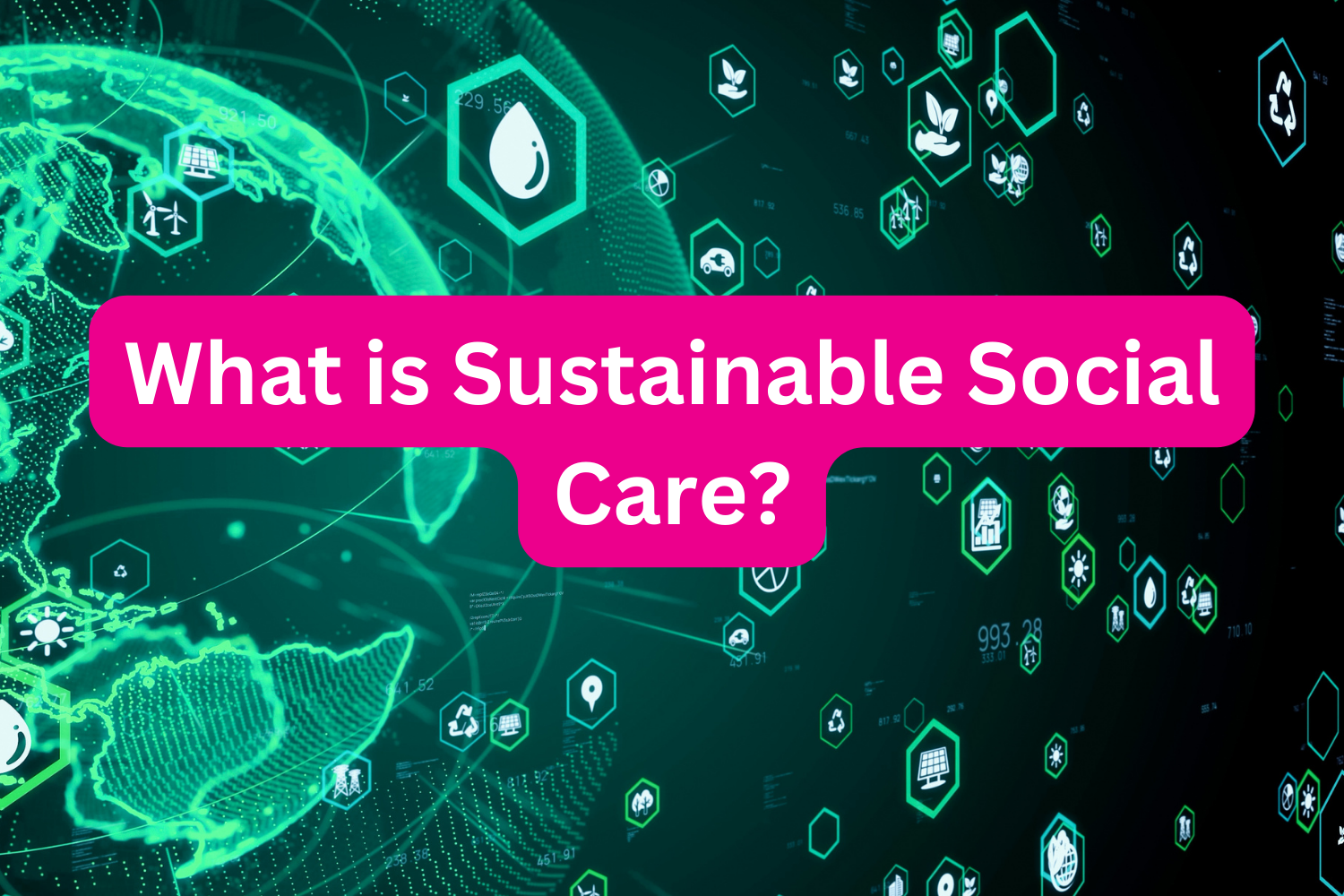
Published in Social Care on 03/06/2024
In the UK, the landscape of social care is evolving rapidly, and more and more focus is being placed on Sustainable Social Care.
This goal is driven by the demographic changes, financial pressures, and the increasing recognition of external impacts. As the population of the UK ages, the demand for social care services continues to rise, placing additional strain on already stretched resources.
In this context, sustainable social care is emerging as a critical approach to ensuring the long-term viability and effectiveness of social care services.
What is Sustainable Social Care?
Sustainable social care refers to the delivery of care services in a manner that is environmentally, economically, and socially responsible. #
It encompasses a broad range of practices aimed at reducing the environmental footprint of care services, ensuring financial viability, and promoting the well-being of both care recipients and providers.
The goal is to create a system that can meet current needs without compromising the ability of future generations to meet theirs.
Key components of sustainable social care include:
- Environmental Sustainability: Reducing energy consumption, minimizing waste, and utilizing eco-friendly products and services.
- Economic Sustainability: Ensuring that care services are financially viable and cost-effective, reducing reliance on short-term funding and promoting long-term investment.
- Social Sustainability: Fostering a supportive and inclusive environment for care recipients and staff, ensuring fair wages, good working conditions, and access to training and development.
Why Care Commissioners are Pursuing Sustainable Social Care
Those involve in social care commissioning are responsible for planning and purchasing social care services, and they are increasingly prioritising sustainability for several reasons:
- Financial Prudence: Sustainable practices often lead to cost savings through more efficient use of resources. Energy-efficient buildings, for instance, can significantly reduce utility bills, while waste reduction can lower disposal costs. By adopting sustainable practices, care commissioners can make better use of public funds and ensure that the cost of care remains affordable.
- Long-Term Viability: A sustainable approach helps to ensure the long-term viability of social care services. By investing in sustainable infrastructure and practices now, commissioners can mitigate future risks associated with climate change, resource scarcity, and economic instability.
- Public Expectation: There is increasing public awareness and concern about environmental issues. Communities expect public services, including social care, to operate sustainably. By prioritizing sustainability, care commissioners can build public trust and demonstrate their commitment to addressing broader societal challenges.
Why Care Providers Should Care About Sustainable Social Care
For care providers, integrating sustainability into their operations offers numerous benefits:
- Enhanced Reputation: Providers that adopt sustainable practices can enhance their reputation and differentiate themselves in a competitive market. Demonstrating a commitment to sustainability can attract socially conscious clients and employees.
- Operational Efficiency: Sustainable practices often lead to greater operational efficiency. For example, energy-efficient technologies and processes can reduce operational costs, while sustainable procurement practices can lead to long-term savings and more stable supply chains.
- Staff Well-being and Retention: A sustainable workplace can improve staff morale and retention. Providing a healthy work environment, fair wages, and opportunities for professional development can reduce staff turnover and associated recruitment costs. Additionally, involving staff in sustainability initiatives can foster a sense of purpose and engagement.
- Regulatory and Funding Advantages: Providers that embrace sustainability may find it easier to comply with regulatory requirements and secure funding. Many funding bodies and regulatory frameworks now include sustainability criteria, and demonstrating compliance can enhance a provider’s eligibility for grants and contracts.
- Future-Proofing: By adopting sustainable practices, providers can future-proof their operations against potential risks associated with climate change, resource shortages, and economic fluctuations. This proactive approach can help to ensure resilience and continuity of services in the face of unforeseen challenges.
Challenges and Opportunities
While the shift towards sustainable social care presents many opportunities, it also comes with challenges.
Initial costs of implementing sustainable practices can be high, and there may be resistance to change from staff and stakeholders accustomed to traditional methods.
However, these challenges can be mitigated through careful planning, stakeholder engagement, and phased implementation.
Training and education are crucial in overcoming these barriers. Staff need to be equipped with the knowledge and skills to implement and maintain sustainable practices.
Additionally, sharing best practices and success stories can inspire and motivate others to follow suit.
Technological advancements also offer significant opportunities for sustainable social care. Innovations such as telehealth, digital care management systems, and energy-efficient technologies can enhance the sustainability of care services. Investing in these technologies can lead to long-term savings and improved care outcomes.
Conclusion
Sustainable social care is not just a buzzword; it is a necessary evolution in the delivery of care services in the UK. As the demand for social care continues to grow, adopting sustainable practices can help ensure that services remain viable, effective, and aligned with societal values.
For care commissioners and providers, the move towards sustainability offers a pathway to greater financial prudence, regulatory compliance, operational efficiency, and enhanced reputation.
Ultimately, sustainable social care is about creating a system that supports the well-being of individuals and communities while safeguarding the environment and resources for future generations. By embracing this approach, the social care sector can play a pivotal role in building a sustainable and resilient society.
CareCubed is a cost of care tool that can help build sustainable care, contact CareCubed today to find out how.






